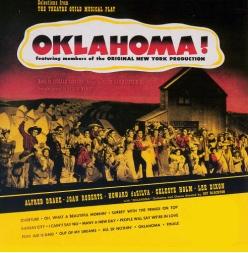Rogers and Hammerstein’s beloved musical Oklahoma! has charmed audiences around the world for almost 70 years. The tale of handsome farmhand Curly MacLain and his courtship of innocent farm girl Laurey Williams, has garnered critical praise, numerous awards, broken records on Broadway and grossed millions at the box office. The show is so frequently performed, in professional, community and high school productions, that there is an average of one performance every day somewhere in the world. While Curly and Laurey wait until after they’ve tied the knot to consummate their love, things could have turned out differently for them if they’d ended up getting it on before their wedding night. And if they were living in Oklahoma today and had to deal with an unplanned pregnancy, things could be pretty bad.
On Feb 19, a hearing will begin in Oklahoma State Court regarding a controversial new abortion law passed last fall but put on hold by a judge until this week. Known as the Statistical Reporting of Abortions Act, the law requires all women who have abortions to complete a form with more than 30 questions including their age, race, level of education and marital status, as well as detailed questions on their reasons for choosing to terminate the pregnancy. The information is then posted on a website. Women who refuse to complete the form cannot be provided with abortion services, and doctors who try to sidestep the process would face criminal sanctions and lose their licence.
Proponents of the bill state that they are simply trying to collect information on why women seek abortions, saying this information will be useful in preventing future unplanned pregnancies. Opponents believe that the bill is simply a new intimidation tactic employed by the pro-life lobby to scare women out of terminating pregnancies. Though the information contained on the website does not include the women’s names or addresses, there is enough information that the public could easily identify, or even worse misidentify, women who have received abortion services, particularly in smaller communities, leaving them subject to threats, intimidation and public scorn.
The restriction of women’s reproductive rights is a principal tool of the Christian conservative movement in forwarding their agenda, both as a means of continuing to perpetuate their centuries-old misogyny and in order to restrict both women’s and men’s rights to freedom of sexual expression.
The restriction of women’s reproductive freedom, as well as women’s rights in general, doesn’t just hurt women. Homophobia is deeply rooted in misogyny and acts of legislative discrimination against women hurt all queers because they continue to perpetuate the notion that the state has a place in regulating our sex lives. As a queer feminist who lives outside the United States, situations like this leave me feeling powerless. Exactly what can I and others like me do about this situation? Maybe we can’t participate in the legal debate firsthand, but we can certainly draw attention to the issue.
I hereby call for a worldwide boycott of Oklahoma! the musical in protest of this legislation. Don’t attend or perform in the show or rent the DVD. Though it won’t likely hurt the state of Oklahoma financially, letting the state’s lawmakers and citizens know that the world is horrified and disgusted by this blatantly misogynist and anti-choice law might make them think twice about trying to regulate what people do with their own bodies. Though we may enjoy Curly and Laurey’s tender tale of young love, we shouldn’t be legally forced to adhere to their sexual morality.


 Why you can trust Xtra
Why you can trust Xtra


